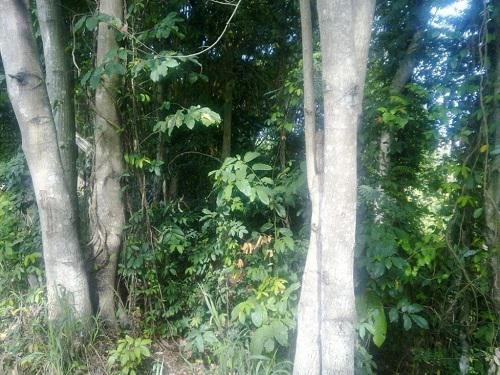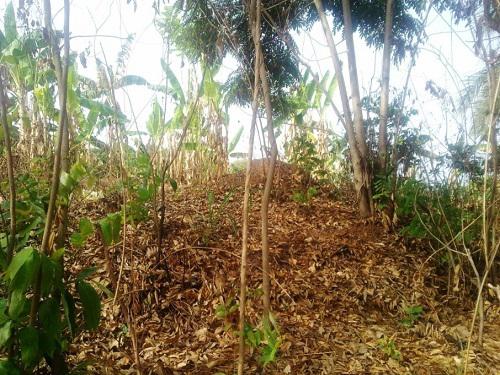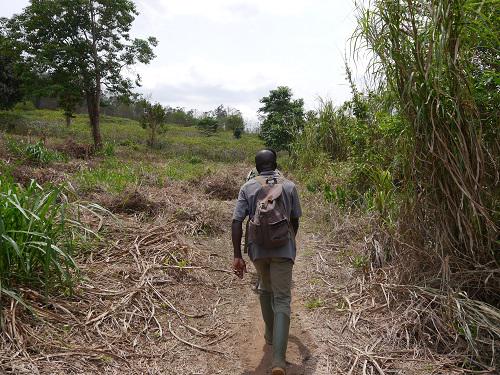Emmanuel Opoku Acheampong
Other projects
22 Nov 2017
Landscape Approach for Reforestation and Farmers’ Livelihood Improvement in Rural Ghana: Working with the Locals
25 Mar 2019
Building the Capacity of Farmers to Restore Degraded Reserves and Improve their Livelihoods
30 Oct 2020
Livelihood Security of Landless Farmers After Canopy Closure: Introduction of Non-Timber Forest Products (NTFP's) in Restored Forests in Ghana
The aims are to examine the livelihood strategies of farmers in forest areas and to involve farmers in reforestation projects towards the improvement of their livelihoods.

Degraded forest reforested.
About 30% of Ghana’s land area forms part of the Guinea Forest Region of West Africa, one of the 34 World Biodiversity Hotspots severely threatened (Arcilla, Holbech, & O'Donnell, 2015; Conservation International, 2005). Human activities have degraded 85% of Ghana’s Guinea Forest Region; this has changed avian community dynamics, population, and species composition (Dowsett-Lemaire & Dowsett, 2014). For instance, the main option for farmers in the study area to access fertile land is to encroach forests since the farmers do not get the opportunity to market their farm produce and use some of the income to purchase inputs such as fertilizers (Acheampong et al., forthcoming). Poor road networks in the study area is a contributory factor to farmers’ inability to access the market (Masters et al., 2013). Expansion of farms with no significant reflection in the wellbeing of the farmers has caused major deforestation in the area. It has been identified through survey that the farmers in the study area are willing to involve themselves in reforestation projects in their communities. This research therefore seeks to practically demonstrate how degraded forest can be regenerated using farmers while improving their livelihoods at the same time.

Potential site for reforestation.
Contribution of the project:

Mapping project site.
Research indicates that farming in remote areas cause more deforestation since the farming communities are relatively closer to the forest and the farmers mostly practice extensive slash-and-burn farming. Remote farmers cultivate on subsistence basis mainly for household consumption. Farmers who attempt to market their produce earn little or no profit due to high post-harvest losses and transportation costs. This research through educational programs that would be provided by agricultural extension officers would demonstrate to farmers how to intensify farming without necessarily expanding farms into forests thereby reducing deforestation rate. This project will establish farmer-based organisations that will make farm produce bulk purchasing possible to reduce post-harvest losses and transportation costs. This will motivate farmers to commercialise their produce which will subsequently increase their household income, improve their livelihoods, and reduce household poverty.
The research will demonstrate how farmers can voluntarily be involved in community afforestation projects that will lead to sustainable agroforestry. This will be one of the projects in Ghana where farmer-based associations would be formed in specific communities to grow trees amidst food crops to reforest degraded portions of forests and in turn support their livelihoods with the crops they grow.